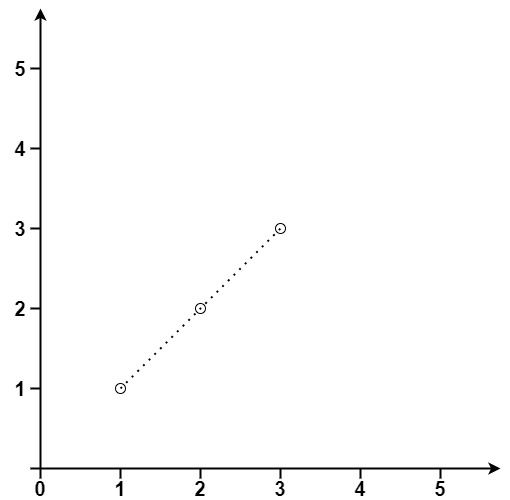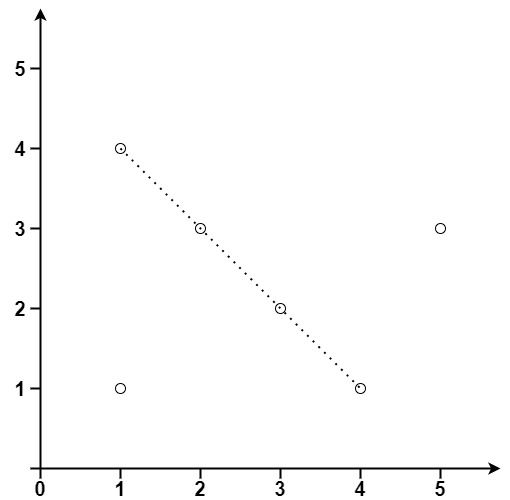Given an array of points where points[i] = [xi, yi] represents a point on the X-Y plane, return the maximum number of points that lie on the same straight line.
Example 1:
Input: points = [[1,1],[2,2],[3,3]] Output: 3
Example 2:
Input: points = [[1,1],[3,2],[5,3],[4,1],[2,3],[1,4]] Output: 4
Constraints:
1 <= points.length <= 300points[i].length == 2-104 <= xi, yi <= 104- All the
pointsare unique.
class Solution:
def maxPoints(self, points: List[List[int]]) -> int:
def gcd(a, b) -> int:
return a if b == 0 else gcd(b, a % b)
n = len(points)
if n < 3:
return n
res = 0
for i in range(n - 1):
counter = collections.Counter()
t_max = duplicate = 0
for j in range(i + 1, n):
delta_x = points[i][0] - points[j][0]
delta_y = points[i][1] - points[j][1]
if delta_x == 0 and delta_y == 0:
duplicate += 1
continue
g = gcd(delta_x, delta_y)
d_x = delta_x // g
d_y = delta_y // g
key = f'{d_x}.{d_y}'
counter[key] += 1
t_max = max(t_max, counter[key])
res = max(res, t_max + duplicate + 1)
return resclass Solution {
public int maxPoints(int[][] points) {
int n = points.length;
if (n < 3) {
return n;
}
int res = 0;
for (int i = 0; i < n - 1; ++i) {
Map<String, Integer> kCounter = new HashMap<>();
int max = 0;
int duplicate = 0;
for (int j = i + 1; j < n; ++j) {
int deltaX = points[i][0] - points[j][0];
int deltaY = points[i][1] - points[j][1];
if (deltaX == 0 && deltaY == 0) {
++duplicate;
continue;
}
int gcd = gcd(deltaX, deltaY);
int dX = deltaX / gcd;
int dY = deltaY / gcd;
String key = dX + "." + dY;
kCounter.put(key, kCounter.getOrDefault(key, 0) + 1);
max = Math.max(max, kCounter.get(key));
}
res = Math.max(res, max + duplicate + 1);
}
return res;
}
private int gcd(int a, int b) {
return b == 0 ? a : gcd(b, a % b);
}
}

